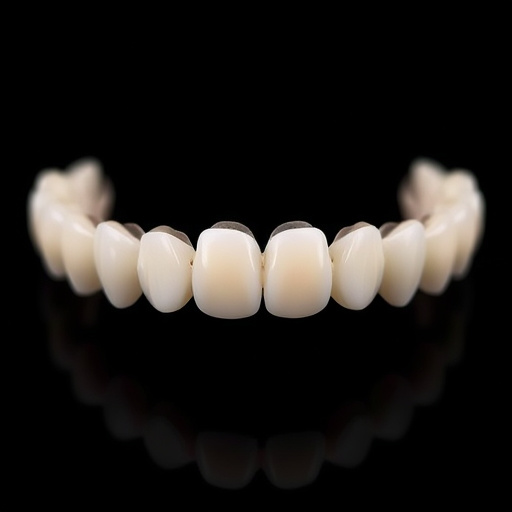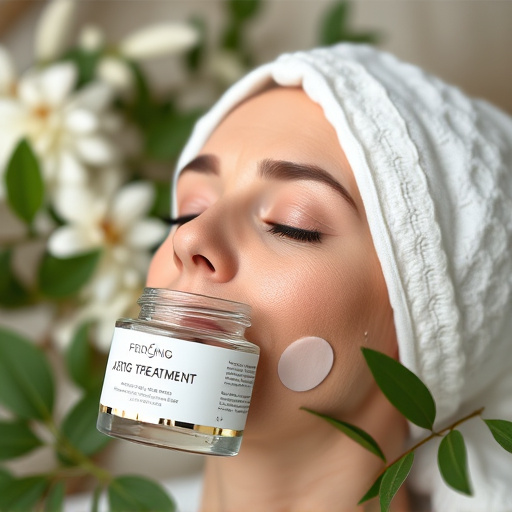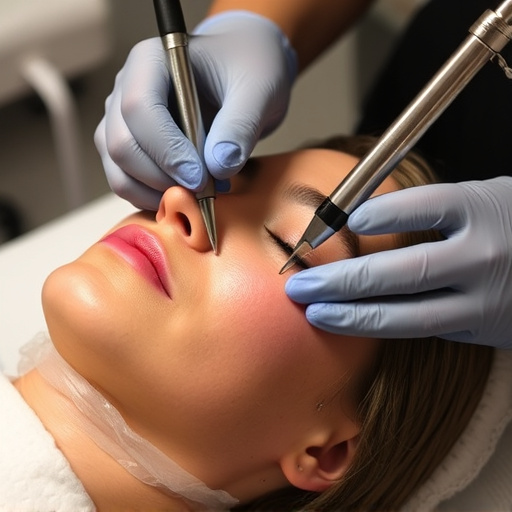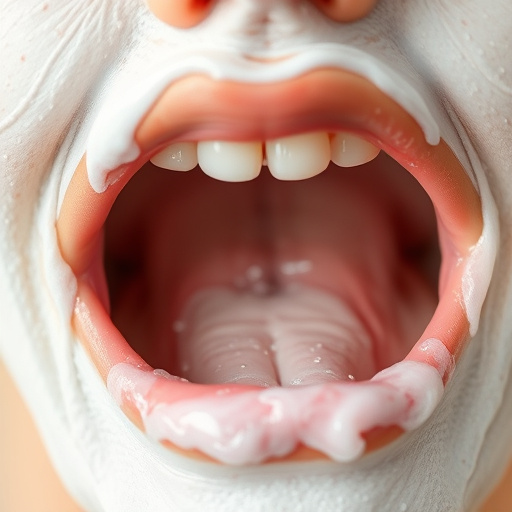Pore cleansing treatments are crucial for maintaining skin health and radiance, with two main types: natural and chemical. Natural methods offer gentle exfoliation using ingredients like honey or aloe vera, while chemical treatments use acids like salicylic or glycolic acid for deeper cleaning. Natural cleansers are gentler but less intense, ideal for sensitive skin; chemical treatments provide faster relief but may irritate certain skin types. Consulting a professional ensures optimal skin health and tailored pore cleansing routines with aftercare options like microneedling or customized facials.
“Uncover the secrets to achieving clear, radiant skin with our comprehensive guide on natural vs. chemical pore cleansing treatments. Pore cleansing is an essential step in any skincare routine, but which method suits your needs? We explore two distinct approaches—natural and chemical—to help you navigate their pros and cons.
From gentle plant-based extracts to powerful chemical exfoliants, learn how each option can transform your skin, ensuring a clearer, healthier complexion.”
- Understanding Pore Cleansing Treatments
- Natural Pore Cleansers: Pros and Cons
- Chemical Pore Treatments: Advantages and Drawbacks
Understanding Pore Cleansing Treatments
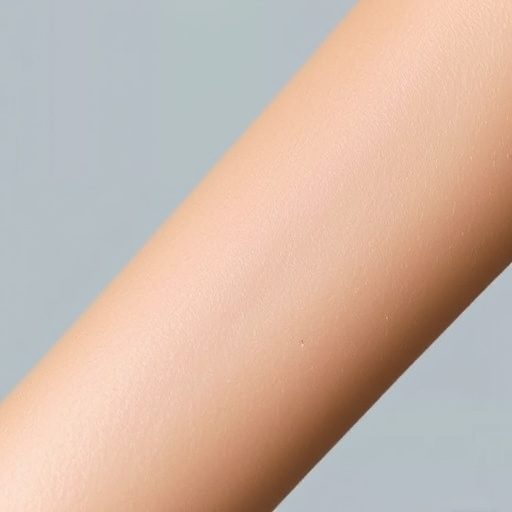
Pore cleansing treatments are essential for maintaining healthy and radiant skin. These procedures aim to unclog pores, remove excess oil, and eliminate impurities that can lead to acne, blackheads, and other skin concerns. Understanding the two primary types of pore cleansing—natural and chemical—is crucial in making an informed decision about which method aligns best with your skincare goals.
Natural pore cleansing treatments often involve ingredients like honey, aloe vera, or steam, which help open pores, soften debris, and promote gentle exfoliation. On the other hand, chemical pore cleansing leverages elements such as salicylic acid or glycolic acid to dissolve dead skin cells and unclog pores more aggressively. This method is particularly effective for deep cleaning but may require more frequent application to maintain results. Both approaches have their pros and cons, with natural methods generally being gentler but offering less intense cleansing, while chemical treatments provide deeper cleaning but can be harsher on sensitive skin.
Natural Pore Cleansers: Pros and Cons

Natural pore cleansers have gained popularity as people seek safer and gentler alternatives to chemical-based products. These cleansers often incorporate ingredients like clay, charcoal, honey, and essential oils known for their purifying properties. One of the main advantages is their ability to gently exfoliate and draw out impurities without stripping away the skin’s natural moisture barrier. This makes them ideal for those with sensitive skin or those looking for effective yet mild anti-aging treatments. Additionally, natural cleansers tend to be more environmentally friendly and free from harsh chemicals, which can irritate the skin.
However, their effectiveness may vary compared to chemical pore cleansing treatments. While they can provide a deep clean, removing makeup and unclogging pores, some users might find them less powerful for deeply embedded impurities. Furthermore, consistency in results can be challenging as natural ingredients may have varying strengths depending on their source and quality. Despite these potential drawbacks, many people prefer natural pore cleansers for maintaining overall skin health and achieving a radiant complexion through customized facials at home.
Chemical Pore Treatments: Advantages and Drawbacks

Chemical pore treatments offer a quick and effective solution for unclogging pores and achieving smoother, clearer skin. These treatments involve applying chemical solutions to the face, which help dissolve oil, dirt, and dead skin cells accumulated in the pores. One of the main advantages is their ability to provide immediate results, making them popular choices for those seeking fast relief from clogged pores or acne. They can also target specific concerns like blackheads and whiteheads, leaving the skin looking refreshed and refined.
However, there are some drawbacks to consider. Chemical treatments may not be suitable for all skin types, especially sensitive or compromised skin. The chemicals used can sometimes cause irritation, redness, or even peeling, especially if not applied correctly. Moreover, while they offer quick results, these treatments might not address the underlying causes of clogged pores, such as hormonal changes or improper skincare routines. As such, it’s essential to consult a professional skincare expert who can recommend the right chemical pore cleansing treatment and pair it with suitable aftercare and personalized facials, like microneedling therapy or customized facials, for optimal skin health and long-lasting results.
When it comes to choosing a pore cleansing treatment, whether natural or chemical, understanding the pros and cons of each approach is key. Natural methods offer gentle, toxin-free options with benefits like reduced irritation and improved skin hydration. However, their efficacy may vary. Chemical treatments, while potent, could cause dryness and sensitivity if not used correctly. With proper application, chemicals can effectively unclog pores and minimize their appearance. Ultimately, the best choice depends on individual skin types and preferences, emphasizing the importance of informed decisions for achieving clean and healthy pores.

